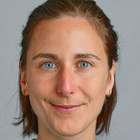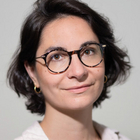The Current Column
Quo vadis ocean literacy
Early insights from the first year of the UN Decade for Ocean Science
Schoderer, Mirja / Ramona HägeleThe Current Column (2022)
Bonn: German Institute of Development and Sustainability (IDOS), The Current Column of 19 September 2022
Bonn, 19 September 2022. The ocean is crucial for human survival. With more than 3.5 billion people depending on it for food security, 120 million people working in fisheries and aquaculture, and with the ocean taking up 30% of all carbon dioxide emissions and 90% of the additional heat generated from those emissions, sustainable ocean governance is a critical and urgent challenge. This challenge requires a significant increase in knowledge production but also a shift in how knowledge is managed.
As discussions within the UN Decade of Ocean Science and at the UN Oceans Conference in Lisbon have shown, ocean science struggles with accessibility – for other scientists but also for citizens and policy-makers, and particularly with respect to non-scientific knowledge systems, such as lay and traditional ones. As many people are unaware of the role that the ocean plays in sustaining humanity and lack opportunities to connect directly with it, building so-called ‘ocean literacy’ – i.e. an appreciation for the ocean and a general understanding of its functions – has become an essential aim of the UN Ocean Decade.
Achieving ocean literacy, however, is complicated by various factors. Firstly, ocean science relies on numerous parameters and large amounts of data that require interpretation and a translation into formats that are comprehensible to non-experts. Whereas dedicated products exist to transmit scientific findings to policy-makers, such as the IPCC report or the World Ocean Assessment, they do not necessarily answer specific questions that emerge among societal actors or decision-makers. However, to translate scientific findings and seek out communication opportunities (such as host open days, visit schools, provide targeted policy advice) takes time and effort that is not necessarily rewarded in academic performance assessments.
Secondly, while the ocean represents a common good that all of humanity benefits from, technical infrastructure (such as research vessels) to conduct marine research is allocated very unevenly across the globe so that many people lack the opportunity to engage in ocean science themselves. In general, marine science receives only a marginal proportion of national research funding in many countries. So far, administrative and political hurdles have prevented the pooling of funds in order to establish a sustained, globally shared research infrastructure compared to the International Space Station or the international weather monitoring system. Beyond a fairer allocation of research opportunities, consistent and comprehensive measurements that would be facilitated by such infrastructures are needed so that scientists can, e.g., identify tipping points in the ocean’s carbon storage capacity and assess how close humanity is to reaching them. While scientists generally agree to share data as freely and as openly as possible within existing regulations, managing one’s data so that it is usable for other scientists requires extra efforts such as the recording of meta information on how data was collected, edited, etc. This information is essential to share data efficiently but often not included in the funding of research projects so that scientists have do it on their own time.
Finally, a wealth of knowledge exists outside the realm of science, based on (oral) histories, artworks, daily observations and other forms of engaging with the ocean that are often embedded in traditional or indigenous knowledge systems and practices. Increasingly, ocean science recognises the need to engage with these knowledges to understand the ocean and human interactions with it in a holistic manner. However, scientists may struggle to do so from eye to eye, as these knowledges often build on assumptions about human-nature-relationships that differ from those underlying natural science. To establish a mutual understanding and dialogue between different knowledge systems and knowledge holders requires time, frequent interactions, and an openness to results that can be challenging to integrate into research projects. At the same time, to engage with other practices of knowing and experiencing the ocean provides an opportunity to co-design ocean science with those who are meant to be its end users, ensuring that scientific results are relevant to them by reflecting their questions, concerns, interests and ways of making meaning.
Co-producing knowledge thus represents a major step in closing the existing gap between science and society and science and policy, and therefore a key contribution to promote ocean literacy. While scientists and policy-makers at the UN Ocean Conference shared urgent calls for co-designed research, to enable it requires changes in the international science system at the structural level, leaving, e.g., research questions and methods open to be determined jointly and allocating funds to projects with outcomes that cannot be delineated in advance. Whether, to what extent, and how rapidly such changes will take place remains to be seen.



